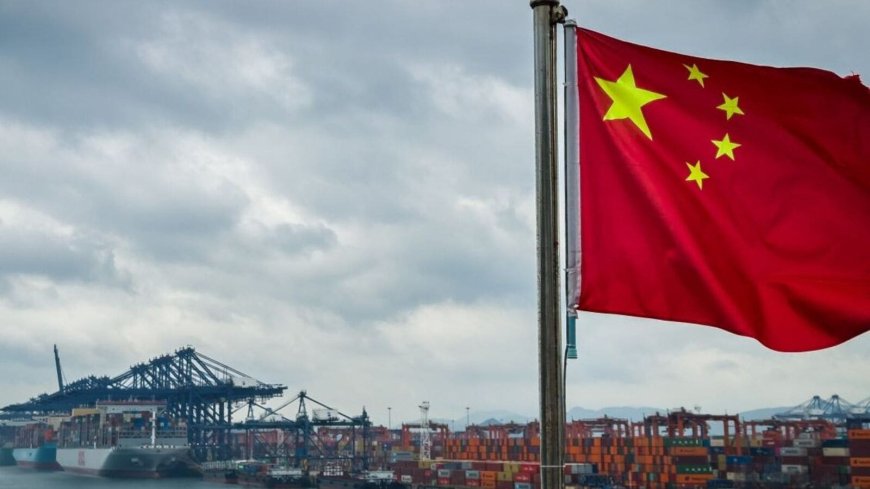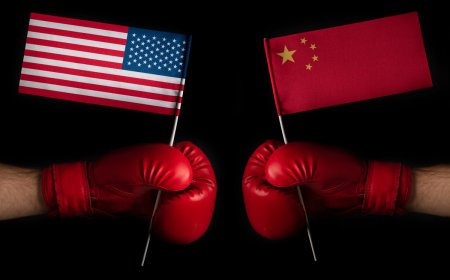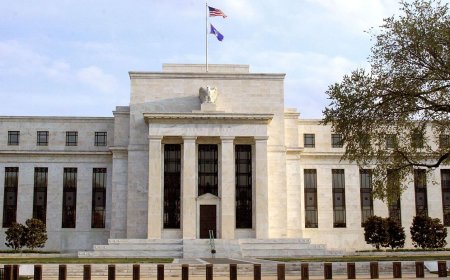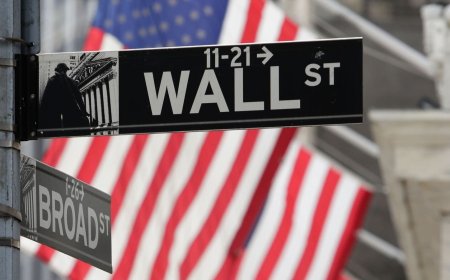China Owns THIS Much Stake in Pakistan Stock Exchange, Reveals Data Amid US-China Trade Truce
As the US-China trade truce eases global tensions, new data shows China’s strategic stake in the Pakistan Stock Exchange. Explore how this ownership reflects Beijing's broader economic game plan.

China Owns THIS Much Stake in Pakistan Stock Exchange, Data Reveals Amid US-China
Deal
Introduction: Behind the Headlines of a Global Truce
The recent easing of trade tensions between the United States and China has brought a temporary sense of calm to global markets. As both superpowers signal a willingness to cooperate on key issues, investors worldwide are breathing a collective sigh of relief. But beneath this surface-level détente lies a deeper, more calculated narrative—one that China has been scripting for over a decade across Asia.
At the heart of this story lies the Pakistan Stock Exchange (PSX), a key financial institution in South Asia that has seen a silent yet significant transformation. While attention remains glued to Washington and Beijing's handshake diplomacy, China's strategic financial footprint in Pakistan is quietly expanding, and it’s far more than just symbolism.
In this article, we decode how much of PSX China actually owns, why it matters, and how this development fits into the broader chessboard of global geopolitics and trade.
Section 1: The Quiet Takeover – A Recap of China’s Entry into PSX
In December 2016, a major deal rewrote the ownership structure of the Pakistan Stock Exchange. A consortium of Chinese investors, led by the China Financial Futures Exchange (CFFEX), the Shanghai Stock Exchange (SSE), and the Shenzhen Stock Exchange (SZSE), acquired a 40% strategic stake in PSX.
This marked the first time foreign investors gained management control in a South Asian stock exchange. While the move was downplayed at the time as a commercial investment, it carried deep strategic undertones.
1.1 Breakdown of the Stake
-
China Consortium Stake: 40% (majority foreign shareholder)
-
Local Brokers and Investors: ~40%
-
Government and Institutions: Remaining 20%
The Chinese stake isn't passive—it's active and operational. The consortium has board-level influence and a say in governance and modernization initiatives within PSX.
Section 2: Why This Stake Matters More Than It Seems
At first glance, China's 40% stake might look like a typical cross-border investment. But in the context of the China-Pakistan Economic Corridor (CPEC) and the larger Belt and Road Initiative (BRI), it’s part of a well-orchestrated long game.
2.1 Economic Footprint with a Strategic Core
-
Financial Control: PSX serves as a gateway to capital markets in Pakistan. With Chinese control, future fundraising, listings, and investment channels can be aligned with Beijing’s strategic interests.
-
Infrastructure Financing: CPEC-related companies could be listed or financed through PSX, allowing China to tap into Pakistani and global capital while maintaining managerial oversight.
-
Digital Modernization: Chinese exchanges brought in technology, surveillance systems, and trading platforms. While this enhances transparency, it also increases data control.
Section 3: PSX and Its Performance Post-Chinese Investment
Since the acquisition, PSX has seen mixed fortunes. While modernization efforts have improved trading efficiency, geopolitical instability and economic mismanagement have affected investor sentiment.
3.1 Key Developments Since 2016
-
Technological Upgrades: Trading systems revamped, surveillance enhanced.
-
Increased Chinese Listings: State-backed and BRI-linked companies now explore PSX listings.
-
Data Transparency: Improved reporting norms, though critics warn of one-sided narrative dominance.
Still, PSX hasn’t emerged as a regional hub the way the Chinese consortium envisioned. Local investors remain wary of foreign dominance, and macroeconomic turbulence in Pakistan continues to impact performance.
Section 4: The US-China Trade Truce – Does It Change the Game?
As the US and China appear to hit pause on their economic hostilities, it opens up interesting possibilities for emerging markets like Pakistan. But it also shifts the lens back onto China’s global investments, including its stake in the PSX.
4.1 Possible Scenarios Post-Truce
-
More Strategic Freedom for China: With less pressure from Washington, China could accelerate financial diplomacy through institutions like PSX.
-
Dual Front Strategy: China continues to engage with Western powers while cementing dominance in smaller economies through ownership models.
-
US Response in South Asia: With China’s presence growing in Pakistan, the US might seek to deepen economic ties with India and Bangladesh as counterweights.
The PSX stake, though financial on paper, is now very much part of the strategic chessboard between superpowers.
Section 5: Risks, Reactions, and Regulatory Oversight
China’s 40% ownership in PSX has not been without criticism. Several quarters in Pakistan, including local brokers and economic analysts, have raised red flags.
5.1 Concerns Voiced by Critics
-
Loss of Sovereignty: Strategic sectors like finance should not be under foreign control, especially from a single power.
-
Overdependence on China: Pakistan already owes billions under CPEC and BRI-linked loans. With the stock exchange under Beijing’s lens, independence in capital markets is questionable.
-
Information Control: Concerns around data flows, surveillance software, and influence on market narratives have surfaced.
On the flip side, defenders of the deal argue that without Chinese intervention, PSX may have remained technologically stagnant and undercapitalized.
Section 6: PSX in 2025 – Where Are We Now?
Fast-forward to today, and PSX is a paradox. It’s both modern and under pressure, globally connected yet domestically constrained.
6.1 Market Snapshot (May 2025)
-
Index Performance: KSE-100 remains volatile, tracking inflation, currency instability, and policy shifts.
-
Investor Participation: Retail participation is rising, but FIIs remain cautious.
-
Chinese Influence: Remains robust. Several PSX board members have close ties to Chinese exchanges.
Recent data from the Pakistan Securities and Exchange Commission (SECP) confirms that China’s consortium continues to hold a 40% stake, with no dilution or exit plans in sight.
Section 7: The Broader Pattern – China’s Stakeholding Diplomacy
The PSX case is not isolated. Across Asia, Africa, and even parts of Europe, China has used minority and strategic equity ownerships to influence critical financial and industrial ecosystems.
7.1 Notable Global Stakes by China
-
Piraeus Port, Greece – 67% stake by COSCO Shipping
-
Sri Lanka’s Hambantota Port – 70% lease to China Merchants Port
-
Electricity and Telecom in Sub-Saharan Africa – Numerous Chinese state-backed deals
The model is clear: own a stake, build influence, shape outcomes.
Section 8: What Should Investors and Policymakers Watch?
China’s PSX stake is a reminder that ownership matters. Not all influence comes from diplomacy or warships; some of it comes from balance sheets and shareholder meetings.
Key Takeaways for India and Others:
-
Watch capital markets for strategic plays, not just trade routes.
-
India may need to strengthen its own financial diplomacy through IPO collaborations and regional stock exchange investments.
-
Transparent foreign investment regulation is key in an era of silent influence.
One Stake, Many Implications
The 40% Chinese ownership in the Pakistan Stock Exchange is more than a financial footnote—it’s a strategic asset in Beijing’s growing web of economic influence. As the world lauds the US-China trade truce, it's important not to miss what’s happening in the background: China is steadily and silently embedding itself into the economic fabric of nations through strategic stakes like this one.
The data is now public, the ownership structure is clear, and the implications are wide-ranging. For Pakistan, it’s a tightrope walk between capital needs and sovereignty. For India and other regional players, it’s a wake-up call to take strategic economics seriously.
For the rest of the world, it’s a reminder that in geopolitics, power isn't just projected—it’s purchased.
What's Your Reaction?
 Like
0
Like
0
 Dislike
0
Dislike
0
 Love
0
Love
0
 Funny
0
Funny
0
 Angry
0
Angry
0
 Sad
0
Sad
0
 Wow
0
Wow
0












































































